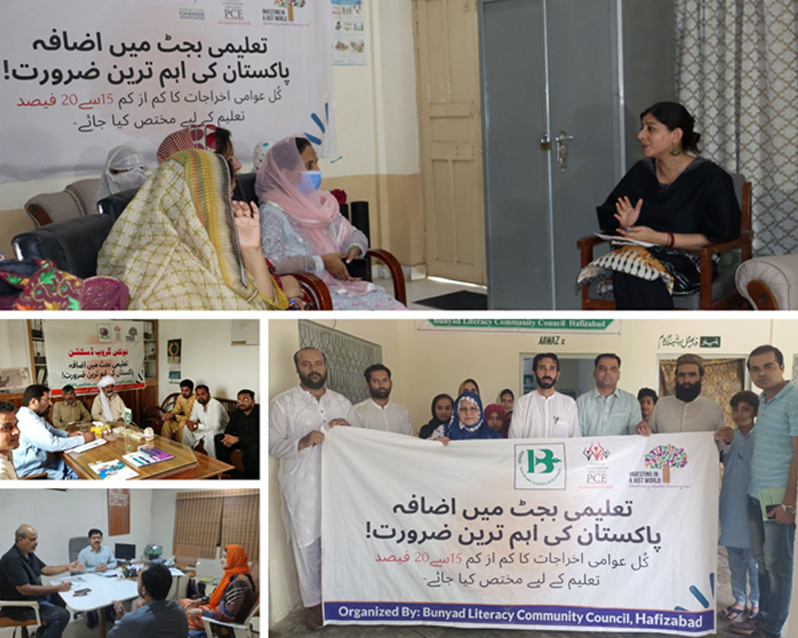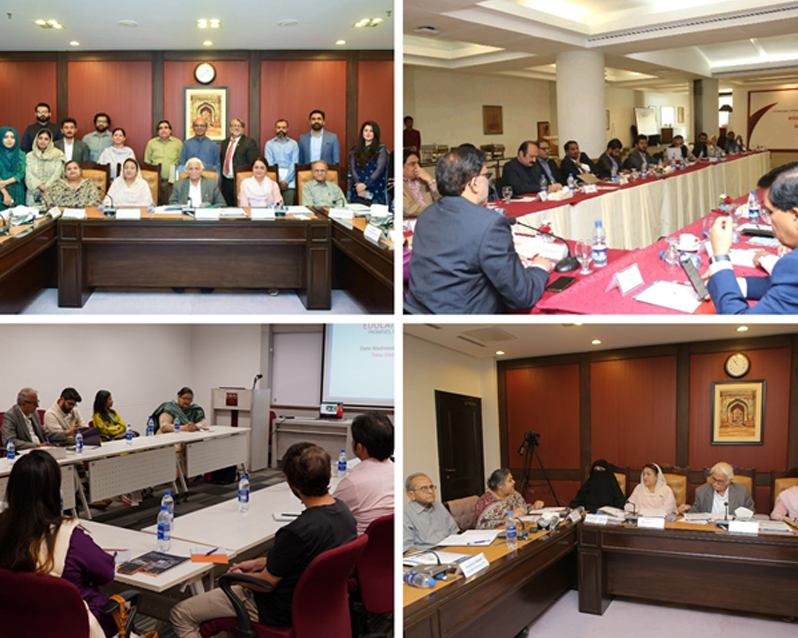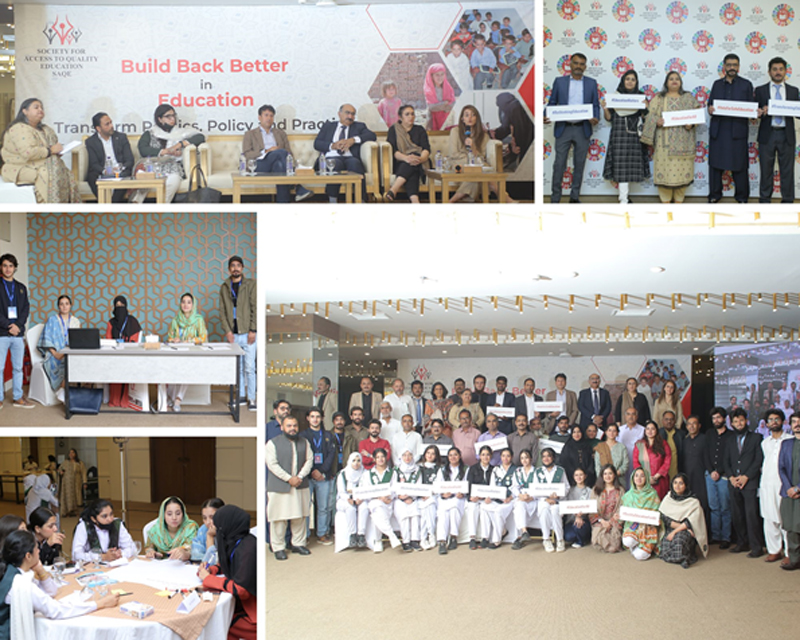Disclaimer: Website Under Maintenance: Our website is currently under maintenance. We apologize for any inconveniences.

Around 26.2 million children are OOS (Out-of-Schools) in Pakistan forming the highest proportion globally. This huge figure demands immediate attention however, priorities of political actors and policymakers are fragmented and overshadowed by traditional issues such as political rivalry and economic instability.
For decades, even after multiple commitments and promises, the state has allocated less than 2% of GDP for education, which is far below the recommended level to ensure sustainable growth. Inadequate funding, lack of quality and inaccessibility remain among the major challenges the education sector faces. Extreme poverty and roaring inflation have caused a severe increase in child labor and early marriages. The lack of safe and inclusive spaces in educational institutes is also contributing to a high number of dropouts.
Mobilizing political support is crucial to instigate fundamental structural reforms in the education system. Pakistan Coalition for Education - a flagship of the Society for Access to Quality Education took the general elections coming in February 2024, as an opportunity to leverage the active political landscape and planned the 'Vote for Safe Education' campaign with a consortium of like-minded organizations. The campaign aimed to:
PCE systematically employed a multi-pronged approach to bring education to the forefront of political discussions. To start with, we formed a consortium with like-minded organizations at the national and sub-national levels, bringing together diverse skills and expertise enabling strategic planning and increased outreach - functioning as a fortifying force for the campaign.
To formulate a comprehensive "Charter of Education", we consulted multiple stakeholders at the grassroots including DEOs, PTAs, SMCs, PAGE (Peoples Action Groups for Education), CSOs and Youth representatives.

This exercise aimed to capture the demands for reforms across short-, medium-, and long-term goals. The charter, which is gender-responsive and reflective of aspirations of diverse groups including girls, youth, PWDs, and transgender individuals, played a pivotal role in shaping our narrative.
After laying the groundwork, the next step was engaging with political actors to make education a priority agenda in the political discourse. We organized All-Party Roundtables at national and provincial levels to raise CS demands aimed at;

Arguments presented in the discussions were data-driven which helped in effectively communicating the urgency of the matter. A factsheet under the title 'State of Education' in Pakistan was specifically developed for this purpose and presented to political party members, policymakers and other participants to increase their understanding of Pakistan's education system. During roundtable meetings, the 'Charter of Education' was presented to political party representatives. It was also included in letters sent to leaders.
At our 14th Annual Convention prior to the general elections, we organized a daylong event on the theme 'Build Back Better in Education: Transforming Politics, Policy, and Practice'. The convention brings together development experts, policymakers, CS representatives, academia, media, youth and more every year to discuss pertinent education sector issues.

The event featured a youth dialogue whereby young people creatively addressed various education sector issues, followed by a policy dialogue with renowned development experts and activists. National Coordinator - unveiled the 'Charter of Education' and acknowledging the grave situation of education called for an 'Education Emergency', which was endorsed by all present. The 'Charter of Education' and other resources were widely disseminated among the audience, to build solidarity and awareness.
To amplify the momentum and extend the outreach of our campaign to a broader public, we employed a blended approach - a mix of traditional and digital advocacy channels. The in-person gatherings helped set a strong base for the campaign by engaging with relevant stakeholders while the digital media circulation helped enhance outreach to the common person.
The campaign yielded transformative outcomes, as education started emerging as a central theme in public and political discourse. Prominent news channels, anchorpersons and influencers endorsed our ideology. Hum News under the slogan 'Taleem, Sehat aur Safai ko Vote do' (Vote for Education, Health and Cleanliness) actively promoted our ideology. Muhammad Malick - a prominent journalist in his prime time show 'Breaking Views' on 92 News also stressed the need for a Charter of Education as endorsed by PCE to improve Pakistan's education sector.
The recently declared Education Emergency by the Prime Minister is a testament to the impact of the campaign. Throughout the campaign, PCE consistently highlighted the need to make education a top priority agenda and declaration of an education emergency, emphasizing the critical state of education in Pakistan and the urgent need for reforms. The declaration of Education Emergency aligns closely with various propositions in PCE Charter of Education. One major directive is to increase the education budget to 4% of GDP by 2029, a move aligned with PCE's advocacy for enhanced investment in education.
Another critical aspect addressed in the PCE charter is the improvement of the student-to-teacher ratio across all educational levels. Acknowledging this, the Prime Minister has directed the fast recruitment of quality teaching staff. Furthermore, responding to PCE's proposal, Prime Minister Sharif has initiated the launch of a National Skill Development Program aimed at equipping youth with market-relevant skills as proposed by PCE in the charter.
The campaign also has a strong impact on the general masses. Increased public awareness has led to a more informed voter who is demanding accountability from leaders contesting in elections on education-related issues.
Authored by: Urwa Naeem-Senior Program Officer - Research & Advocacy, Bilqees Fatima -Coordinator MER & Resource Development